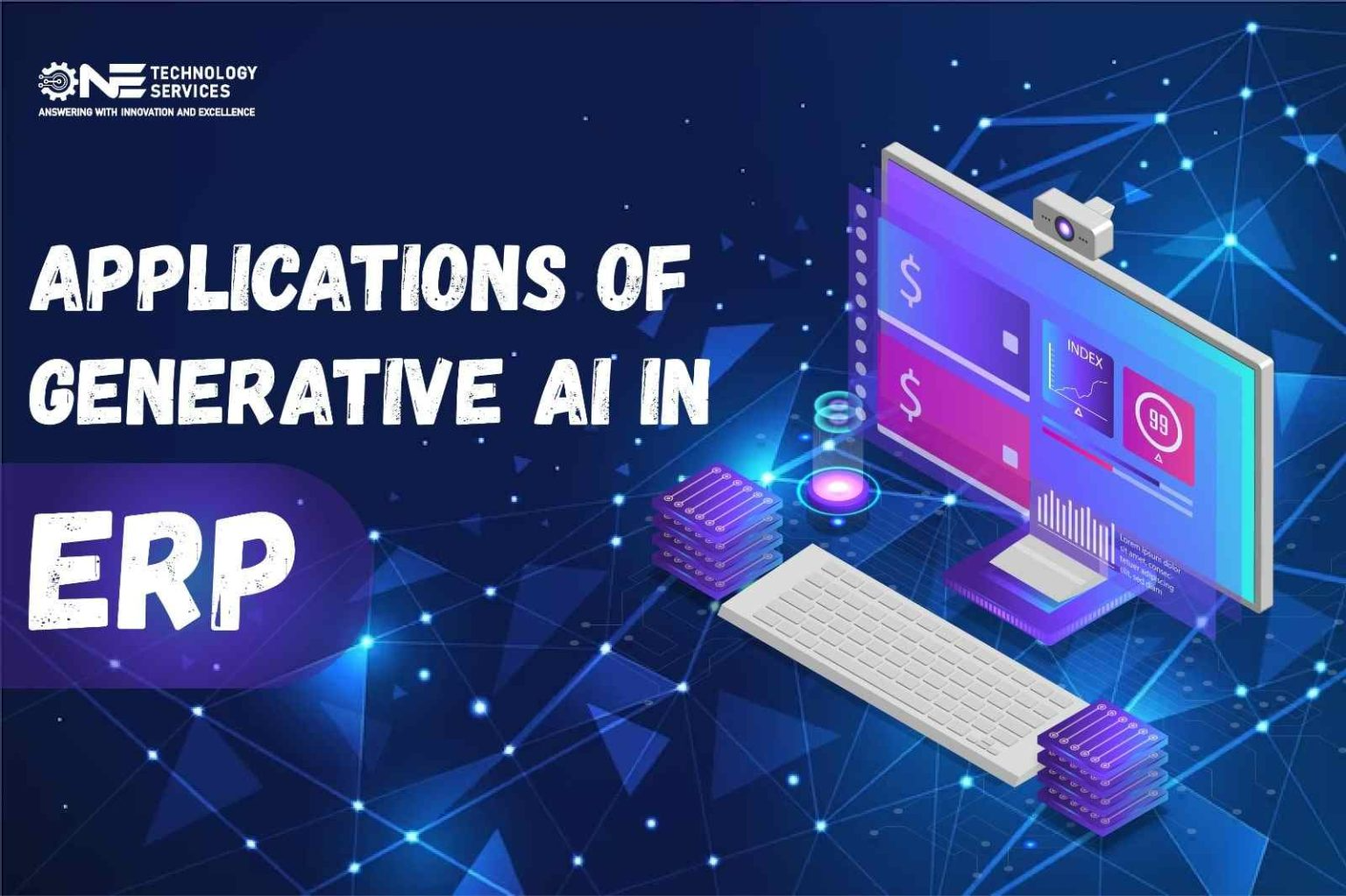Enterprise Resource Planning (ERP) systems have long been the backbone of organizations, streamlining business processes and enabling efficient resource management. With the advent of generative Artificial Intelligence (AI), ERP systems have witnessed a significant transformation. Generative AI, with its ability to learn patterns, generate new data, and mimic human creativity, has opened up exciting possibilities for enhancing ERP capabilities.
In this article, we will explore five key applications of generative AI in ERP, revolutionizing efficiency and decision-making within organizations.
Enhanced Data Analysis and Forecasting:
Generative AI algorithms can analyze vast amounts of data within ERP systems, identifying patterns, trends, and correlations that might be missed by human analysts. By employing generative AI, ERP systems can provide more accurate forecasts, enabling businesses to optimize inventory management, anticipate demand fluctuations, and make data-driven decisions.
Intelligent Process Automation
Generative AI enables ERP systems to automate complex business processes intelligently. With the ability to understand and mimic human behavior, generative AI can automate repetitive tasks, such as data entry, document processing, and even customer support.
This automation reduces human error, increases operational efficiency, and allows employees to focus on higher-value tasks.
Natural Language Processing (NLP) in ERP
Generative AI, combined with NLP, can revolutionize the way users interact with ERP systems. NLP-powered chatbots and voice assistants can understand and respond to natural language queries, simplifying user interfaces and enhancing user experience.
This empowers users to access real-time information, perform transactions, and retrieve insights from ERP systems more intuitively and efficiently.
Personalized User Interfaces
Generative AI can analyze user behavior and preferences within ERP systems to create personalized user interfaces. By adapting the interface based on individual needs, generative AI improves user satisfaction and productivity.
Customized dashboards, reports, and workflows enable employees to access relevant information quickly, resulting in faster decision-making.
Fraud Detection and Risk Management
Generative AI can play a vital role in identifying potential fraud and managing risks within ERP systems. By analyzing historical data and detecting anomalies, generative AI algorithms can flag suspicious transactions, unauthorized access attempts, or unusual patterns of behavior.
This proactive approach helps organizations minimize financial losses and maintain data integrity.
Conclusion
Generative AI is revolutionizing the capabilities of ERP systems, enabling organizations to achieve new levels of efficiency, accuracy, and decision-making prowess.
Through the applications of generative AI in ERP, such as enhanced data analysis and forecasting, intelligent process automation, NLP integration, personalized user interfaces, and fraud detection, businesses can unlock hidden insights, streamline operations, and gain a competitive edge.
As organizations embrace the power of generative AI in ERP, they pave the way for improved resource management, optimized processes, and enhanced business performance.

